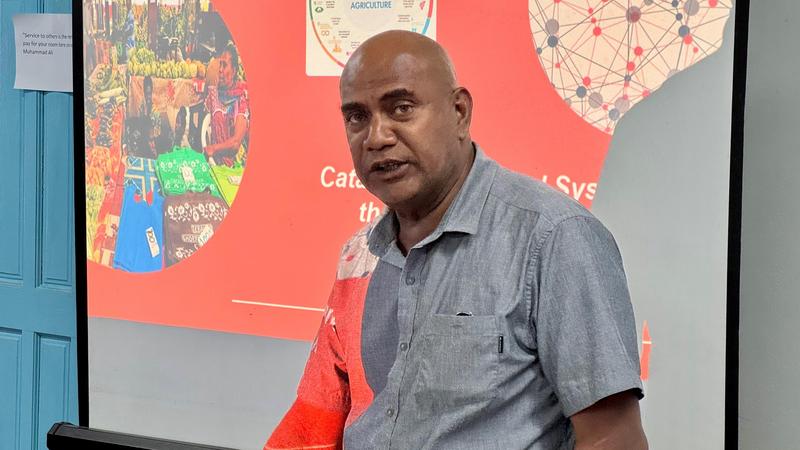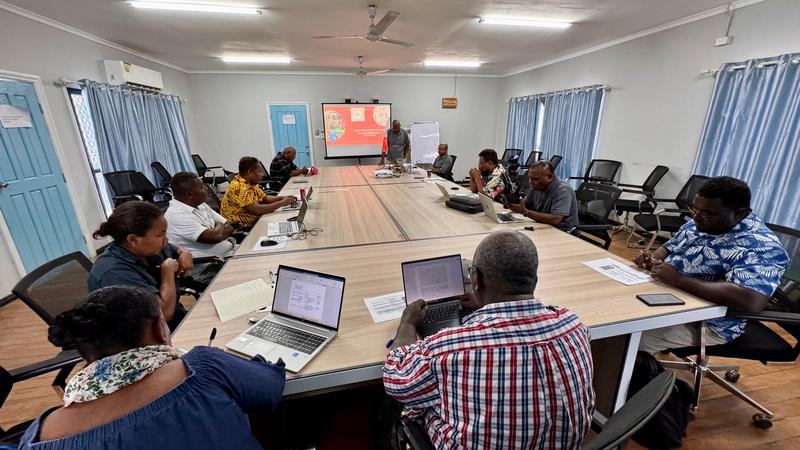The Solomon Island's Ministry of Agriculture and Livestock (MAL), in partnership with the Food and Agriculture Organization of the United Nations (FAO), has successfully completed a two-day workshop on the Digital Farmer Registry (DFR) and the revalidation of the E-Agriculture Strategy, a national digital platform designed to register and manage information on farmers, their households, and farm activities.
Simon Baete, Deputy Secretary Special Duties (DSSD) at MAL, opened the workshop by emphasizing the importance of agriculture as the backbone of the national economy, stating, “Agriculture remains the heart of our economy and the livelihood for most of our people.” He acknowledged the prevalent challenges facing the sector, including limited access to data and weak coordination among institutions.
“The Digital Farmer Registry and the E-Agriculture Strategy are critical initiatives that will enable us to collect accurate farmer data, improve planning, and strengthen agricultural services across the country,” he added.
Throughout the workshop, participants from various government ministries and partner organisations explored effective ways to implement the Digital Farmer Registry, the governance structures required, and the strategic guidance provided by the E-Agriculture Strategy for digital transformation in agriculture.
Baete remarked, “This is not just a technical discussion — it’s about shaping the future of agriculture in our country. Your ideas, experiences, and recommendations will help make these tools practical and impactful for our farmers and communities.”


MAL’s vision is to create a "modern, inclusive, and resilient agriculture sector powered by innovation and technology." The Deputy Secretary highlighted that a digital registry would help identify farmers and their produce — a crucial step for developing smarter policies and enhancing service delivery.
“This workshop is a vital step in our collaboration toward harnessing digital tools for the advancement of agriculture to a smarter, more connected agriculture sector,” he said.
Covering both subsistence and commercial farmers, the DFR will enhance transparency and coordination across government programs, helping ensure that assistance reaches genuine beneficiaries. It represents a key outcome under the FAO project, Catalyzing Agrifood Systems through Digitalization (TCP/SAP/3909).
The platform is fully interoperable with other national systems and follows Digital Public Infrastructure (DPI) principles of openness, inclusion, and reusability. It provides real-time data dashboards and mobile tools for enumerators, while allowing farmers to self-register online or via mobile devices.
FAO’s Digital Agriculture Specialist, Bandara Rotawewa, highlighted that the registry strengthens both agricultural governance and social protection linkages, improving the nation’s capacity to respond to shocks and invest in smallholders’ futures.










